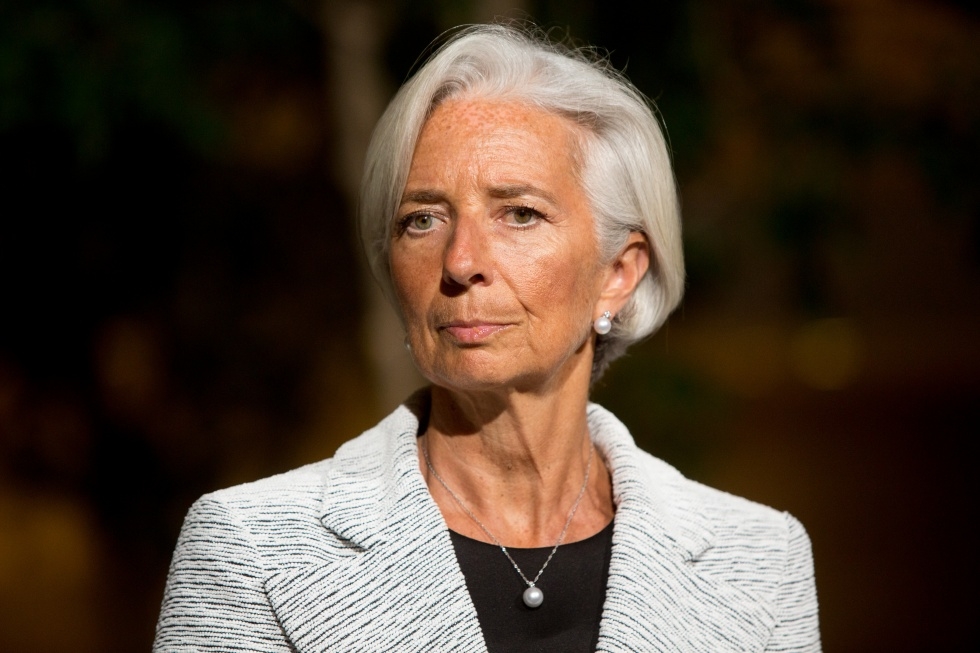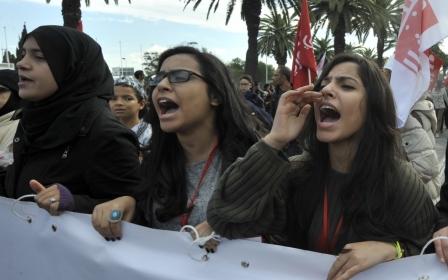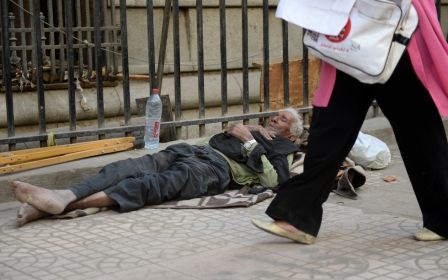IMF chief: 'Jarring' unemployment in Arab countries threatens development

IMF chief Christine Lagarde congratulated Arab Spring countries Thursday for making economic progress, but warned that they are still facing a "jarring job crisis."
Speaking in Morocco, where Lagarde is currently finishing up a two-day visit, the IMF director general said that the region’s youth unemployment continued to be among some of the highest in the world.
Youth unemployment in North Africa averaged 27.9 percent in 2012, while the Middle East fared only marginally better with 26.5 percent, according to the International Labour Organisation.
It is widely believed that malcontent over job market stagnation played a major factor in igniting the so-called Arab Spring protests that first erupted in Tunisia in late 2010 and quickly spread through much of the MENA region.
Unrest succeeded in toppling veteran strongmen in Tunisia, Egypt, Libya, Yemen, and led to major protests in Bahrain with smaller protests also breaking out in Morocco, Jordan and Oman. In Syria the uprising to topple President Bashar al-Assad has turned into a civil war with no end in sight that has killed an estimated 150,000 people.
New MEE newsletter: Jerusalem Dispatch
Sign up to get the latest insights and analysis on Israel-Palestine, alongside Turkey Unpacked and other MEE newsletters
Elsewhere the reverberations from the uprisings are still being felt, with security concerns generally on the up and much-needed reforms slow in materialising.
Lagarde said that despite the bleak political situation of what she dubbed the "Arab transition countries" and its effect on other regional nations, there is some good news.
"The good news is that the economic situation in the Arab transition countries is looking up - higher exports, higher public investment and signs that private investment will rise."
"Still, progress remains fragile," she warned.
"We can see the dark clouds of political and security tensions hovering over the region - just look at the heartbreaking tragedy that still besets Syria. We also know that a turning tide in the emerging markets, Europe, or the Gulf could have ripple effects in this region."
Tunisia, Morocco and Jordan were singled out for particular praise for already taking steps to reform their economy.
But youth unemployment could yet undermine these positive currents, Lagarde warned, while stressing that the majority of MENA countries had to step up efforts to increase economic growth and employment and do more to bolster a middle class.
"The Arab transition countries are today facing a jarring jobs crisis, and this must be addressed,” Lagarde said.
"The unemployment rate averages 13 percent, with youth unemployment more than double that at 29 percent - among the highest in the world.
“Since 2010, the number of people out of work has jumped by 1.5 million," she added.
The IMF’s work and its economic reforms programmes attract a fair bit of controversy and IMF-backed policies, such as reductions in popular subsides, can be very sensitive and negotiations over a $4.8bn IMF loan for Egypt have repeatedly stalled.
While the economies of MENA region countries and even "Arab transition countries" differ vastly, the IMF believes that almost all suffer from a serious deficit of the so-called “middle.”
These countries must be "strengthening the middle: the middle of the economy, the middle of society and also the middle ground for the state that neither suffocates nor stands aloof from the real economy," Lagarde said.
Achieving this, she said, means "giving a shot in the arm" to small- and medium-sized enterprises, she added.
Middle East Eye delivers independent and unrivalled coverage and analysis of the Middle East, North Africa and beyond. To learn more about republishing this content and the associated fees, please fill out this form. More about MEE can be found here.




